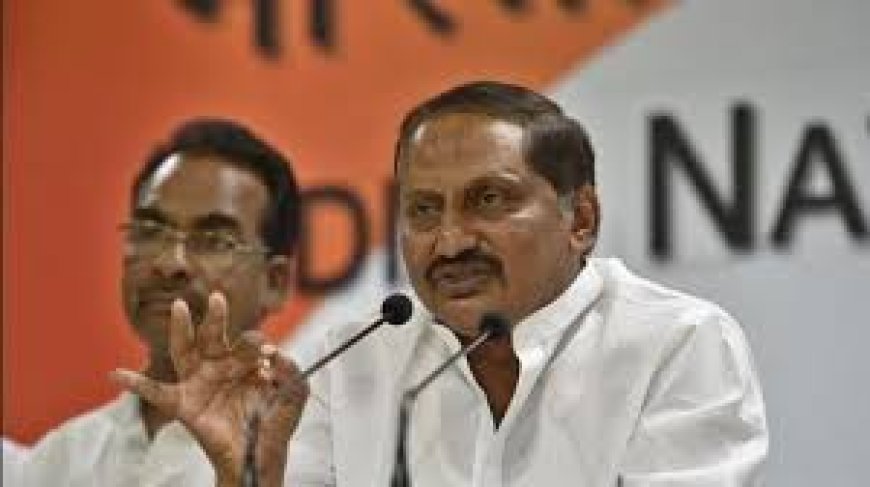Public Policy Failures & Governance Challenges: Former CM Kiran’s Call to Andhra Pradesh BJP Chief Madhav
Former CM Kiran urges AP BJP chief Madhav to question govt on policy failures, governance challenges & public service gaps for better administration.

Introduction
Public policy plays a vital role in shaping the socio-economic development of a state. However, when policies fail, citizens often bear the brunt through inefficiency, poor service delivery, and delayed reforms. Recently, Former Andhra Pradesh Chief Minister Kiran Kumar Reddy urged BJP state president D. Purandeswari and leaders like Chief K. Madhav to actively question the government on pressing public issues. His statement sheds light on the urgent need to address governance challenges and revitalize public administration.
Brief History & Context
Public administration in India has evolved since independence, with the civil service forming the backbone of policy implementation. In Andhra Pradesh, political leadership has faced criticism for not being proactive enough in raising issues like unemployment, infrastructure gaps, and local governance inefficiencies. Kiran’s remarks indicate a demand for more active political engagement to ensure public accountability.
Causes of Public Policy Failure
- Poor Planning & Execution – Policies without clear, practical implementation plans often collapse.
- Political Interference – Decisions influenced by party politics rather than public welfare.
- Weak Institutional Capacity – Lack of skilled personnel and resources in the public sector.
- Corruption & Lack of Transparency – Erodes trust and hinders progress.
Challenges Facing Local Government & Public Sector
-
Limited Financial Resources leading to incomplete projects.
-
Ineffective Public Management causing delays in essential services.
-
Resistance to Change from outdated administrative systems.
-
Coordination Gaps between state departments and local bodies.
Civil Service Role in Public Administration
The civil service is expected to maintain neutrality, efficiency, and fairness in executing policies. Strengthening training, ethical standards, and performance monitoring can significantly improve governance outcomes.
Kiran’s Demand & Public Expectations
Former CM Kiran demands that BJP’s state leadership actively voice public concerns—such as inflation, infrastructure, job creation, and farmer welfare—in legislative forums and media platforms. The public expects transparency, responsiveness, and measurable progress, not just political rhetoric.
Importance & Significance
Raising questions in a democratic setup ensures:
-
Checks and Balances on the ruling government.
-
Better Resource Allocation through scrutiny.
-
Public Confidence in governance mechanisms.
Advantages of Addressing Governance Gaps
-
Improved public trust.
-
Higher economic growth through efficient resource use.
-
Stronger democratic institutions.
Disadvantages of Ignoring Public Issues
-
Growing dissatisfaction among citizens.
-
Policy paralysis.
-
Weak economic and social development.
Conclusion
Public policy success depends on strong political will, efficient administration, and active public participation. Kiran’s call to BJP leaders like Madhav is not just a political move—it’s a reminder that democracy thrives when leaders engage with people’s real issues. For Andhra Pradesh, the road ahead requires transparency, accountability, and reform-driven leadership.

 Ellofacts
Ellofacts 





